What to do – Non-UWPD Law Enforcement on Campus
Access to campus spaces:
Many of the spaces on campus are public spaces and open to campus visitors and officials alike. However, UW employees must adhere to the Family Educational Rights and Privacy Act (FERPA). Therefore, student participant and employee information must be stored in secure spaces including private offices and staff only locations.
Offices, labs, conference rooms, classrooms, and residential living areas are NOT public spaces. You are not required to grant federal employees (including ICE, Homeland Security, FBI, etc.) access to such spaces unless directed by a UW official
For additional resources and information please visit this Campus and Community Safety site.
Instructions for Faculty and Instructors
Instructions for Faculty and Instructors
In the unlikely event that ICE, Homeland Security, FBI, DHA or non-UWPD law enforcement comes to your classroom or work area, please do the following:
- Refer the agent to the department Chair or Dean. If you cannot reach your Chair or Dean, contact UW Police Department dispatch directly at (206) 685-8973 or 911 and tell dispatch what is happening and ask them to come to your classroom/work area.
- You can remind individuals in your classroom or workplace that they have the right to remain silent. Do not direct or order them to remain silent.
- Always take notes on what they did and where they looked. If they have a judicial warrant they will simply enter your classroom or work area. This is legally permissible.
Instructions for Professional Staff
Instructions for Professional Staff
In the unlikely event that ICE, Homeland Security, FBI, DHA or non-UWPD law enforcement comes to your work area, please do the following:
- Refer the agent to your supervisor. If you cannot reach your supervisor, contact UW Police Department dispatch directly at (206) 685-8973 or 911 to inform them of the situation and ask for guidance.
Best Practices for Keeping Our Community Safe
- Inform the student of their rights if contacted by non-UW officials. If you can communicate with the student, advise them that they have the right to remain silent and to request legal representation. They are not required to disclose their immigration status without legal counsel present.
- Conduct yourself professionally when interacting with federal immigration enforcement officials and law enforcement and do not engage in casual conversation with them.
Instructions for Supervisor
Instructions for Supervisor
In the unlikely event that ICE, Homeland Security, FBI, DHA or non-UWPD law enforcement comes to your work area, please do the following:
- Call the UW Police Department immediately at (206) 685-8973 or 911 to inform them of the situation and ask for guidance.
- Do not disclose information about students, faculty, or staff, without direction from the UW Police Department or Attorney General’s Office.
- UWPD will communicate with appropriate district and campus legal experts and administration to ensure that all student and employee rights are being protected under the law.
- Tell the federal officials or non-UW law enforcement that they will need to present documentation for review by UW’s legal counsel (the Attorney General’s office) or the UW Police Department. You are not qualified to assess this documentation on the university’s behalf nor can you provide consent to access a non-public space for non-UW business. Note that such access is prohibited by state law.
- Document the interaction. Politely request identification and business cards from the agents and inquire about the purpose of their visit.
Best Practices for Keeping Our Community Safe
- Maintain a safe environment. Ensure that the presence of law enforcement does not disrupt the learning environment or cause undue stress to students, faculty, and staff. If necessary, suggest moving the discussion to a discrete location away from the communal spaces, reception or lobby areas, or classrooms.
- Document the encounter. Keep a detailed record of the interaction, including the agents’ names and badge numbers, the date and time, and the specifics of their request. This documentation may be important as you correspond with UW officials and for any future legal considerations.
- Inform the student/staff/faculty of their rights if contacted by non-UW officials. If you can communicate with the student/staff/faculty, advise them that they have the right to remain silent and to request legal representation. They are not required to disclose their immigration status without legal counsel present.
Requests for Access to Campus Spaces:
Note that under state law, faculty and staff cannot authorize use of “agency funds, facilities, property, equipment, or personnel to investigate, enforce, cooperate with, or assist in the investigation or enforcement of any federal registration or surveillance programs or any other laws, rules, or policies that target Washington residents solely on the basis of race, religion, immigration, or citizenship status, or national or ethnic origin.” RCW 43.17.425(1); RCW 43.17.420(15).”
Civil immigration warrants do not grant special power to compel the College or University to provide access to non-public spaces on campus or information/evidence. However, a court order or warrant signed by an Article III judge will generally require prompt or immediate compliance and authorizes the immigration enforcement official to search and seize the individual or property as described in the warrant.”
The ATGs office will need to determine whether a warrant or order is administrative (requesting consent, which can be legally denied) or judicial (signed by a judge, inside the bounds of criminal law, and which requires compliance).
Requests for Information about students:
Please remain aware that most student information is protected by FERPA and cannot be released without a legal warrant. As with access to non-public spaces, someone in the Attorney General’s office would need to determine the legitimacy of a warrant or court order and then release the appropriate information. Employees should not release information without review by appropriate campus officials. If such information is requested, calling the campus safety contact [911 or (206) 685-8973] is again the right first action to direct federal officials or non-UW law enforcement to the appropriate campus officials to handle their requests.
The ONLY information that is public and would not be FERPA protected and require consent by the individual student is Directory information.
Directory information in WA state is “student’s name; major field of study; enrollment status; dates of enrollment; participation in recognized sports; degree or certificate earned; and term degree or certificate awarded honors.” Also note that students can restrict the information available in the campus directory.
“Disclosure of any other information would require the affected student’s consent before release in response to a public records request. Recall also that even if the response to a request is “Directory Information,” if responding to the request reveals non- Directory Information about the student then that disclosure would be governed by FERPA student consent rules and their exceptions. E.g., if a request asks for a list of “international students,” even if the disclosure would be directory information, it is not allowable under FERPA’s Directory Information exception as status as an international student is not directory information.”
Campus Resources
Campus Resources
- UW Bothell Student Health & Wellness Resource Center
- Seattle campus student well-being
- UW Tacoma Student Health
- Student Legal Services
- Resources for the UW’s global community
- Undocumented student resources
- Washington State Employee Assistance Program
- UW Office of Research updates
- UW Office of Federal Relations updates
Off Camous Legal Services & Support
Off Campus Legal Services & Support
The following organizations provide free legal consultations for anyone regardless of status. Many of these organizations also provide different services and support focused on community and mutual aid.
- National Immigration Legal Services Directory – Call (206) 587-4009
Northwest Immigrant Rights Project (Seattle Office)
- Catholic Immigration Legal Services – Call (206) 328-6314
Catholic Immigration Legal Services
- City of Seattle Office of Immigrant and Refugee Affairs (Seattle Legal Defense Network) – Call (206) 727-8740 or email oksana.bilobran@seattle.gov
Seattle Legal Defense Network – IandRaffairs
- Lutheran Community Services Northwest – Immigration Counseling and Advocacy Program – Call (206) 694-5742
- El Centro de la Raza – Call (206) 957-4634
https://www.elcentrodelaraza.org/
- Colectiva Legal Del Pueblo – Call (206)931-1514
- Stronger Together Toolkit
WA State Services & Support
WA State Services & Support
In the state of Washington there are strong organizations that not only focus on providing legal aid, but also focus on advocacy in issues pertaining to immigration. The following resources provide various opportunities for getting involved, providing accurate information, and preparing in emergency situations.
- Red Card Orders – Or call @ 1 800 793 7082
- Latino Bar Association – email info@lbaw.org
- Northwest Immigrant Rights Project – Call (206) 587-4009
Northwest Immigrant Rights Project
- World Relief Western Washington Immigration Legal Services – Call (253) 277-1121
Immigration Legal Services – World Relief
- Tacoma Community House Immigration Services – Call (253) 383-3951
Immigration | Tacoma Community House
- Immigrant Legal Resource Center
This page of resources has been adapted from posted efforts from Los Rios Community College (https://losrios.edu/student-resources/support-services/undocumented-student-resources/how-to-respond-to-immigration-enforcement-on-campus); as well as, the Keep Washington Working Act (https://agportal-s3bucket.s3.amazonaws.com/uploadedfiles/Home/Office_Initiatives/KWW/KWW%20Schools%20Model%20Guidance.pdf).

 Vice President,
Vice President, 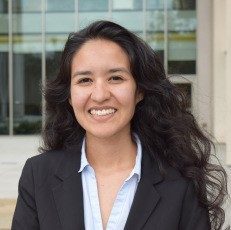

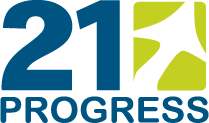
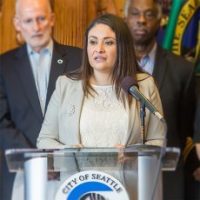
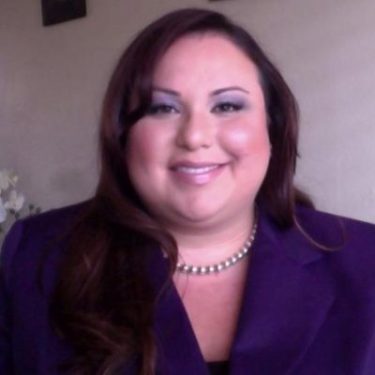

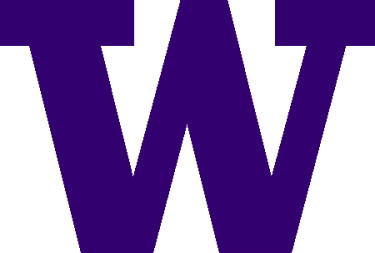 Presenters:
Presenters: